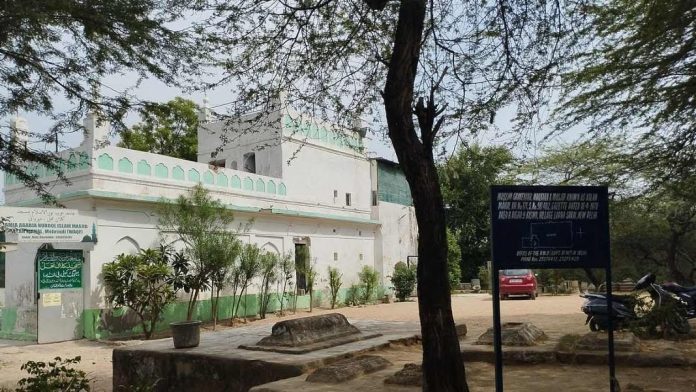26 Jun. 24: The atmosphere at the Delhi Waqf Board office is tense. Staff shortages and budget constraints are significant stressors, but the greatest fear for waqf officers is venturing into the field. Public perception of waqf boards as avaricious land-grabbers has escalated, resulting in verbal and physical attacks on officers during site inspections and checks on property income.
Scrutiny and pressure on waqf boards are at an all-time high. Following the Babri Masjid demolition, disputes around Varanasi’s Gyanvapi mosque, Mathura’s Shahi Eidgah, and Delhi’s Sunehri Masjid have heightened anxiety within the Muslim community about their religious heritage sites.
Waqf Boards, India’s third-largest landowners after Indian Railways and the armed forces, are reeling under legal cases, staff shortages, political appointments, encroachments, and demolitions. Calls to abolish waqf and its laws are gaining momentum, but many in the Muslim community demand reforms to address alleged mismanagement.
Mounting Legal Challenges
“There has been a sharp increase in litigation cases in the last five years,” said a senior official at the Delhi Waqf Board (DWB). The boards oversee over 8.72 lakh immovable properties, from graveyards and mosques to orchards and educational institutions. However, these properties are often tangled in messy disputes over mismanagement and rightful donations, exacerbated by communal tensions and political controversies.
The negative portrayal of waqf boards as encroachers is false, stressed the senior DWB official. “We have enough property. We don’t need to encroach on others,” he said. However, the backlash is growing, fueled by political rhetoric and media portrayal.
The Battle for Narrative
Iqbal Khan, senior legal officer of the Haryana Waqf Board, is determined to counter misinformation. In his Ambala office, he compiles a booklet explaining waqf, its history, relevant laws, and the process of designating lands as waqf properties. He disputes claims that waqf boards can arbitrarily declare any land as their own.
Internal Struggles and Political Appointments
Political appointments have exacerbated waqf boards’ struggles. These appointments often result in arbitrary actions and increase the chances of corruption. In several states, political figures have been appointed to waqf boards, raising concerns about conflicts of interest and misuse of power.
The mutawalli system, where each waqf property has a manager responsible for property management and revenue collection, is another source of corruption. Mutawallis often misappropriate funds or fail to collect rent, contributing to the boards’ financial woes.
Calls for Reform
Despite their frustrations with the waqf boards, many Muslims favour reform over abolition. They see waqf boards as crucial for maintaining religious sites and providing social welfare services. However, widespread corruption and mismanagement must be addressed.
Waqf Boards are fighting a desperate battle for identity and relevance in a changing India. Legal battles, public perception, internal chaos, and political heat are significant hurdles. Reforming the waqf system is essential to restore its integrity and ensure the appropriate use of waqf properties for the greater good.




